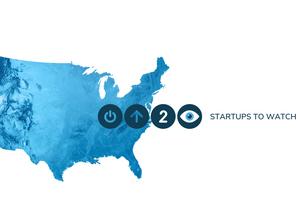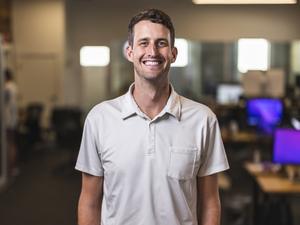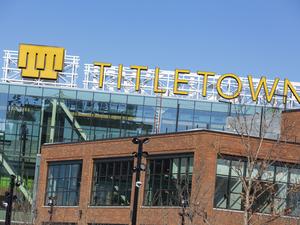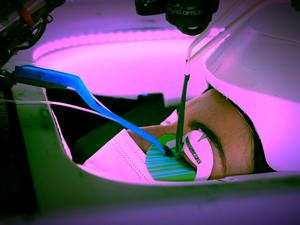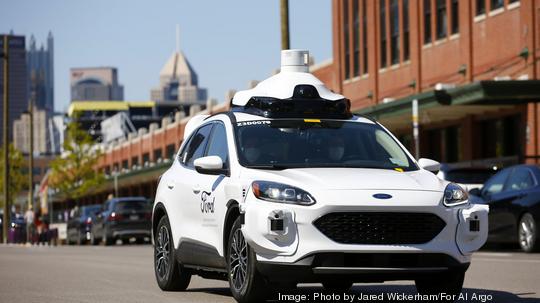
Welcome to The National Beat powered by American Inno, a weekly look at the startup fundings, profiles, analysis and other news you need to know from 40+ cities across the U.S. Want more stories like this in your inbox? Sign up for our future national newsletter from American Inno.
Special Feature
American Inno has published its inaugural Startups to Watch, which spotlights 40 startups across the nation you need to know.
On our list, you'll find a Portland, Oregon, startup making organs for surgeons to practice surgery, an Atlanta startup helping creators earn money (with a boost from Snoop Dogg), a Sacramento robotics startup helping farmers pick fruit and an Albany startup making bacon out of mushrooms.
You'll meet the Baltimore feminine hygiene startup that raised funding from Beyoncé, the Seattle startup helping companies identify pay disparities backed by Stephen Curry, and the Miami startup co-led by Jake Paul that wants to change the sports-betting industry.
Meet all of the American Inno Startups to Watch here.
The Big One: Driverless startup Argo AI shuts down
One of the most prominent autonomous vehicle startups is hitting the brakes. Pittsburgh-based Argo AI announced it is shutting down and will be absorbed by its backers — Ford Motor Co. and Volkswagen, Pittsburgh Inno reports.
The startup was founded in 2016 by Bryan Salesky and Peter Rander, who both worked at the National Robotics Engineering Center at Carnegie Mellon University. It raised more than $1 billion in funding from Ford Motor Co. and Volkswagen.
Argo had an employee count of 1,800 globally, with 800 in Pittsburgh. The company said many of its employees "will receive an opportunity to continue work on automated driving technology with either Ford or Volkswagen, while employment for others will unfortunately come to an end."
It's a blow to the promise of driverless vehicles, which has been touted as one of the next impactful advances in technology but has failed to materialize in the way some enthusiasts have hoped. And the technology has consistently fallen behind Silicon Valley's timeline for when to expect fully functioning driverless cars on U.S. roads.
But the news is also a blow to Pittsburgh's tech scene, according to Pittsburgh Inno, who interviewed local business leaders on the impact of Argo AI's shutdown.
"There is no hiding that this is a short-term setback to Pittsburgh’s technology economy growth," said Sean Luther, president and CEO of InnovatePGH. "We are amid a global correction in the autonomous vehicle sector and Pittsburgh – as the birthplace of that technology – is going to feel those effects."
But local experts remain bullish on the city's tech talent, including its potential as an autonomous vehicle hub.
"While it’s sad whenever a company goes out of business and people lose their jobs, I’m optimistic that Pittsburgh will continue to develop world-class robotics companies and the talented employees at Argo will hopefully find other exciting world-changing opportunities in robotics here in Pittsburgh at the wide range of companies doing novel robotics across the city in areas far beyond just autonomous driving," Matthew Johnson-Roberson, director of Carnegie Mellon University's Robotics Institute, said.
Startups to Watch
- TMRW Sports, a Winter Park, Florida-based firm started by golfers Tiger Woods and Rory McIlroy, has raised nearly $15 million in funding. TMRW Sports is creating a tech-focused golf league called TGL. The TGL will consist of six teams of PGA Tour golfers competing in 15 regular-season, Monday night matches. Players, including Woods and McIlroy, will compete on a virtual course.
- Wispr, a South San Francisco startup, says it is developing a consumer wearable that will allow people to operate their phones with just their thoughts. The founders, in an interview with Bay Area Inno, were light on the details, but said they are building a consumer wearable that will tap into the electrical signals pulsing through our bodies. The goal is translate those signals into actions. The startup has raised more than $14 million since it launched last year.
- In other Bay Area startup news, Alef Aeronautics unveiled its flying car that looks, well, like a car. It can be driven like one, fits into a regular parking space and doesn't have wings that need to be folded back or snapped on. The car moves in the air via a system of eight propellers that are attached to its frame under the areas where the trunk and engine would be in a conventional car. It's designed to travel up to 200 miles on the road or 100 miles in the air on a single charge.
- Boston startup Hilma wants to make finding women’s running shoes as customizable as a bra fitting. Hilma matches runners to one of its shoes through a questionnaire about their shoe experience, including the brands they like and dislike, any insoles or inserts they wear and how often they need to size up or down. The questionnaire also dives into specifics about the runner’s foot, asking questions about their arch, toe length, bunions and foot width.
- Charlotte, North Carolina-based UnbelievaBuns makes low-carb, high-protein, keto- and vegan-friendly sandwich buns. Its products landed on Publix Super Markets' shelves in September. Whole Foods Market stores also started carrying his products earlier this spring.
- Chicago startup Stemloop is making a home test to detect lead in drinking water. It secured funding recently from TitletownTech, a VC fund from the Green Bay Packers and Microsoft. It also secured backing from the U.S. Department of Energy and Defense.
- Columbus startup Synota seeks to lower utility bills – and increase access to renewable energy for households without power globally – by using real-time bitcoin payments to cut out administrative costs in the energy industry. It recently launched out of stealth mode, announcing a $3 million seed round.
- Get Together AI, a Cincinnati startup led by founders from Nielsen and P&G, wants to build a better Calendly. The scheduling startup’s software aims to find time for social gatherings, work meetings and appointments in seconds. Get Together’s goal is to allow for frictionless scheduling “anywhere someone sends a message,” whether it be text, email, Slack, LinkedIn or Teams, using either voice or written prompts.
- Washington, D.C. startup Pyrra Technologies is trying to combat disinformation on social media using artificial intelligence and machine learning. Pyrra finds disinformation circulating through alternative social media channels like Rumble and 4chan, to help companies, governments and other organizations get in front of false narratives before they reach the mainstream.
- Miami startup Freebee is offering a free – and cleaner – ride-hailing alternative to Uber and Lyft. The Miami company raised $8 million in a series A round to grow its on-demand ride-hailing service, all powered by electric vehicles. BP Ventures, a venture capital firm associated with British oil and gas giant BP (NYSE: BP), led the capital round.
- Portland smart calendar startup Reclaim.ai raised $3.2 million. The startup has built intelligent calendar software to help professionals sync personal and professional calendars, block time for certain tasks, and prioritize meetings. The ultimate goal is to create a platform that can sit on top of other productivity tools and tie them together, not only making it easier to manage time but also giving people better insight into how their time is spent.
- Milwaukee-area health technology startup GenoPalate Inc. has raised $5.6 million to grow its personalized nutrition products and improve its mobile and web applications, according to a Tuesday announcement. GenoPalate provides consumers with personalized nutrition guidance based on DNA results. Customers can purchase a DNA test kit through GenoPalate or upload reports from 23andMe or AncestryDNA. GenoPalate's analysis can help users uncover food sensitivities and genetic superfoods, learn about their genetic-based needs for 23 nutrients and gain insights into how their DNA impacts mood and stress levels, according to the company.
A fund to watch
Gregg Scoresby, the founder and former CEO of high-profile edtech firm CampusLogic, is set to introduce PHX Launch, a venture studio that is aiming to find and fund a group of Phoenix-area software startups. The PHX Launch Fund will focus on backing early-stage, B2B SaaS (software-as-a-service) companies in Arizona.Scoresby will use the fund solely for preseed investments that will place category-creating startup founders into the venture studio. The plan is to target 12 to 15 startups that are each expected to receive between $250,000 and $500,000.
'Pharma bro' Shkreli talks new Web3 drug startup
Martin Shkreli was released from federal prison in May after serving four years of a seven-year sentence for securities fraud. As the result of a separate federal lawsuit, a judge banned him for life from the pharmaceutical industry — an industry that made him both rich and infamous after he raised the price of a drug used by AIDS patients by 5,000%.
Now, Shkreli is starting his second act, Bay Area Inno reports. He's not launching not a drug company, he says, but a drug discovery software company with Web3 elements like cryptocurrency transactions and decentralized networks.
Druglike has raised $3 million in funding from undisclosed donors, and is making it very clear it is not a pharma company with launch day press release stipulating, "Druglike is a blockchain/Web3 software company and not a pharmaceutical company."
Weird and Wired: Buying horses, in the Metaverse
A Kentucky horse farm and an iconic racing venue are teaming up to offer a new first for the horse racing industry: An immersive Metaverse experience and an opportunity to own a percentage of the world's highest-rated Thoroughbred.
Lane's End, a horse farm in Woodford County, Kentucky, and Keeneland announced the partnership this week ahead of the 2022 Breeders' Cup World Championship, being held at the track on Friday, Nov. 4 and Saturday, Nov. 5. An auction is being held in conjunction with a first-of-its-kind Metaverse experience designed to replicate the excitement of Keeneland’s iconic November Breeding Stock Sale.
